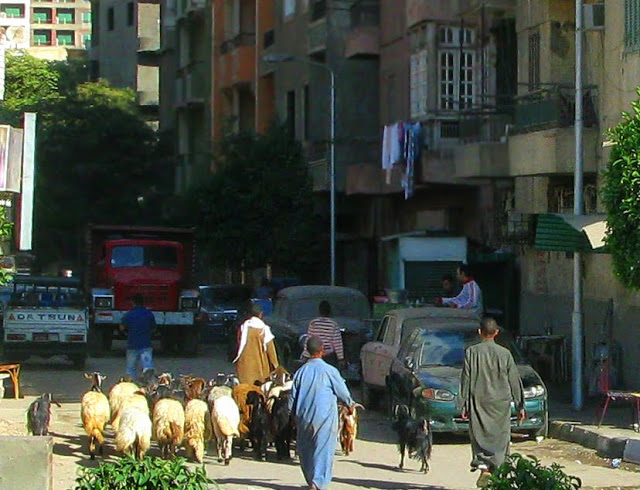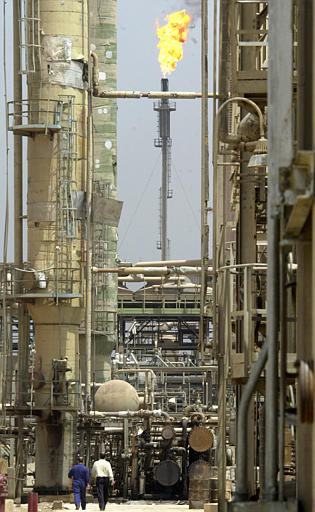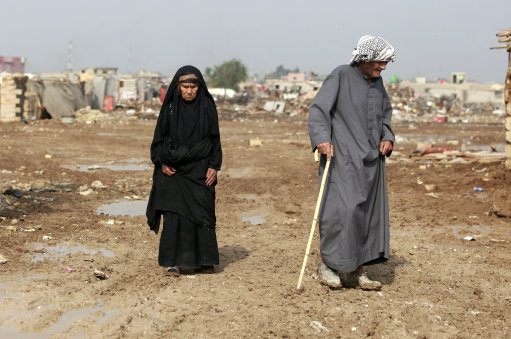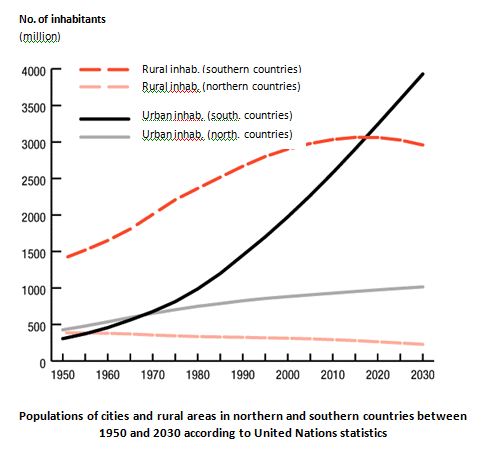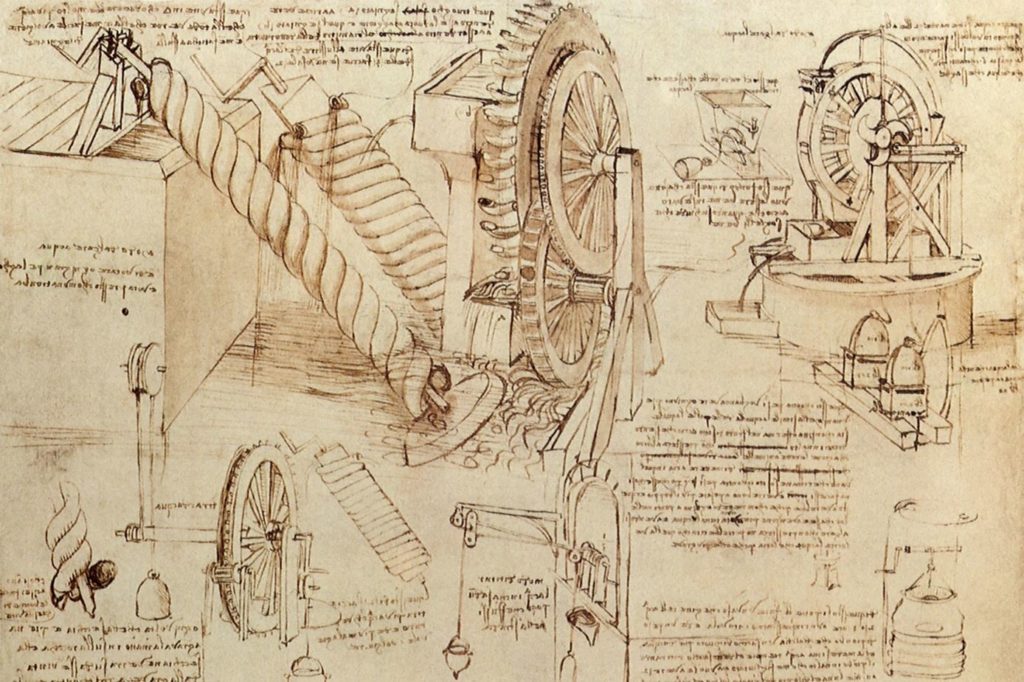
The West experienced its resurgence during the period of what has come to be known as the Renaissance, the period between the 14th and 16th centuries. Subsequent phases of development continued organically thereafter. But with the exception of some basic attempts made at the end of the 19th century, and the period which followed the First World War (a situation which had its implications), there is no precedent throughout the long history of Arab and Islamic culture for anything that can be termed a Renaissance in the contemporary meaning of the word.
YET ARAB AND ISLAMIC history did experience a renaissance prior to that which took place in the West, although it was not termed as such. This occurred in the first three centuries following the rise of Islam, that is, between the seventh and tenth centuries AD.[1] There are very many studies devoted to this period, but what distinguishes this renaissance was that it turned out to be a passing historical phase that was not destined to endure. Subsequently these societies entered into periods of cultural and intellectual regression lasting for many centuries until the dawn of the 20th century. During this Dark Age Egypt experienced a limited cultural renaissance following Napoleon’s campaign (1798-1801), and even though this campaign lasted a mere four years it was an important basic constituent in the later construction of the modern Egyptian state.
Arab and Islamic societies are unceasingly fascinated by this ‘Renaissance’ and extol it without asking themselves why it disappeared never to be repeated. Today in the West many purported academic institutions in traditional Arab and Islamic sciences are proliferating, financed by Arab and Islamic states. Their intention is perhaps to study these scientific achievements which are of historical value, but there is no single centre specialising in the study of the reasons for the collapse of this scientific activity. For the reason behind the collapse of science is the same reason that lies behind societal backwardness and cultural regression. A study of the phenomenon and a knowledge of its causes would resolve the issue.
Cultural somnolence led to the halting of intellectual inventiveness
During this several centuries long period of cultural somnolence mankind’s thinking was fuel for a constant battle towards modernisation and cultural development in all its human and material aspects. The cultural somnolence led to the halting of intellectual inventiveness and the arrest of societal development in all its aspects. Not only that, it led to the consolidation in these societies of intellectual and behavioural concepts, habits, traditions and patterns, to the point that the word ‘conservative’ became a term sanctified by society, and anyone who departed from it considered an ‘apostate’. Over this long period of time society’s mindset became closed and the social apparatus was at its furthest removed from modernity. Everything prior to the First World War therefore became ‘preserved’. When the British occupation army entered Baghdad at the beginning of the 20th century it discovered something amazing in a city which had been known from history books as the city of the 1001 Arabian Nights: at the time of its occupation Baghdad constituted nothing more than a pile of ruins and a society that was in a pitiable state of backwardness and ignorance.[2] This was no doubt due to its ‘conservation’ and self-isolation.
Some intellectual attempts, some basic cultural tinkerings, were made by the élite at the end of the 19th century and the beginning of the 20th century which some historians, as can be seen in the discourses of Jamāl al-Dīn al-Afghānī, Muhammad Abduh and Hibbat al-Dīn al-Sharastānī, treated as if they were a fresh Renaissance! These characteristically were limited attempts undertaken by clerics and those who were – and still are – representing a class of people influenced by the prevalent mindset in society. Their proposals therefore took the form of exhortations and their exponents were not spared the anger and rejection of the religious institutions or their incitements against them. After the fall of the Ottoman Empire and the rise of modern states in place of their former colonies, various political tentative moves for renewal here and there took place. These attempts came up against local obstructions rejecting modernisation[3] and some major difficulties, but they were necessary attempts nevertheless. What principally distinguishes these attempts is the following:
- They focused on the construction of the city more than, as was more necessary, of the rural village (as we shall see later);
- They concentrated on the furnishing of state administration structures and social services without focusing on the building of a modern social culture, which was non-existent then and still does not exist now;
- They busied themselves with building vertical systems of education (from the primary to the doctorate level) without concerning themselves with the nature of primary instruction or modern societal training for the individual, in place of a merely professional training;
- They at times concerned themselves with campaigns for the eradication of alphabetical illiteracy without concerning themselves with the eradication of cultural illiteracy, in a culture that could equip the individual for living in the modern age;
- There was weakness or absence of societal training.
As can be seen, these initiatives are no more than enthusiastic attempts at hastening national construction, and were born of dazzlement at the West and its achievements. Consequently they demolished things and built anew, but lost more opportunities faster than they constructed new ones. These attempts are no more than cultural tinkerings, made in an ill-considered bid for resurgence. They embarked on the procurement of social, political and military systems that had been established by developed societies. The building up process was therefore a superficial and temporary one and these programmes began to collapse. Not only this, the construction and demolition operation went on, and still does, with the result that these societies, after having exited the prison of time, are still confusedly searching for their way. The construction and demolition process will thus go on unabated until it reaches the point of exhaustion. These societies are paying the cost of the intellectual self-closure bequeathed them by their forefathers for nigh on ten centuries, and they are today still unable to diagnose the cause. One fears the consolidation of this intellectual self-isolation that has led, and is still leading, to this tragic result.
The 20th century has passed away and yet these societies are failing in their construction and dismantling programmes without having made any steps towards active social modernisation. Much like the inane ambitions and attempts of the politicians, Arab Muslim thinkers have made their special, considered contributions. They were not slow to propose modernising programmes both of reform and renaissance. I do not wish to pause further on these attempts or the great thinkers that lay behind them, but just to say that these intellectual innovations amounted to no more than philosophical or intellectual discourses more akin to theoretical proposals than anything else. There was a wide gap between these and the facts on the ground. Consequently they were never able to produce anything practical.
These attempts are no more than cultural tinkerings
Whatever the case may be, is it possible to ask what it is that these societies want? Is it renaissance or reform? A renaissance needs to be fed by intellectual currents contemporary with their time and upon which it can base itself. Can these societies boast such contemporary intellectual currents, on which a renaissance can base itself? Clearly these societies do not possess any contemporary intellectual structures, as can be seen from the intellectual fragmentation they are experiencing.
So we find ourselves standing before the option of reform. But what reform is this to be? There are some who call for a religious reform. But the Islamic religion is supported by independent institutions that have detached themselves from power almost since the age of the Umayyads – institutions that have remained influential and dominant over society’s mindset up to the present-day. Like any other religion, Islam can only institute reforms via the religious establishment, yet the Islamic religious establishment does not speak with one voice and cannot be induced to change its intellectual convictions for the sake of reform.
We are therefore faced with the problem of a social mindset that has become established and deeply embedded over centuries. The inadequacy of this mindset has been demonstrated in the way it confronted modernity. In confronting challenges, contemporary global society takes for granted the existence of characteristics specific to a modern society, and to a modern individual, and this is what contemporary states seek to develop in every new generation. It is possible to construct a modern city over a number of years, particularly if oil wealth smoothes the task. Its sons may well import the most modern global technological innovations and the like, and a construction programme like this may well not require much more than a few decades.
But can all these formal measures build an innovative modern society that understands its social responsibilities in various, interactive systems whereby the individual is free and inventive, while at the same time constrained by law? Can this present period create a society that overcomes the social complexes built up and embedded unresolved over centuries? Will these few decades be enough to restore innovative flexibility to a human mindset enchained and petrified for centuries? A programme of school building might well succeed in eradicating alphabetical illiteracy but how can there be an escape from cultural illiteracy, and how long would such an operation take?
Social culture has constructed its own place and its own time for itself. The previous century revealed patterns of behaviour, even among liberals and Marxists in these societies, which operate in a framework very similar to the paradigm of religious thinking under which society has been raised over centuries. This is reflected in the reformist leaders themselves, since it never occurred to Atatürk, or the Shah of Iran or 20th century Arab leaders that what they were doing was no more than applying make-up or merely painting on modernity, while concealing beneath it all a social backwardness ten centuries deep. Consequently, what was demolished was demolished and that which is not on the way to demolition simply awaits its turn, if not now then tomorrow.
What it is that these societies want? Renaissance or reform?
Contemporary political Islamic thought attempts to put its hand to the task, just as previously other political currents attempted to do with their claims to, or attempts at reform or renaissance. What is worth noting is that contemporary Islamic thought is nothing but a natural extension of the mindset that refused the first Renaissance and machinated against it for ten centuries, one that has controlled society’s mindset throughout this period of cultural regression. A mindset like this is too far removed from any understanding of the nature of the present era and its requirements to be able to draw up any programmes for reform. Such intellectual patterns prepare the ground for heaven, and abandon God’s servants to be slaves devoid of any power on Earth. They do not understand that life on Earth is subject to laws which only those who possess freedom of thought and the scientific method can understand. Failings in society and on the battlefield are nought but a natural product of this intellectual paradigm.
We face a unique problem, one which, in short, is the problem of societies that have been captive for a millennium to closed patterns of thought and which now find themselves in a time that is not their own. This situation is entirely different from the situation of primitive societies. Primitive societies are not captive to closed patterns of thought and they can therefore modernise and integrate themselves easily into contemporary global society.
Some see that the problem of Arab and Islamic societies vis-à-vis the West is confined to their being the exporters of terrorism, whereas the greater problem stems from their sole pre-occupation with productive capacity, with the exploitation of potentials, with natural and human resources, the raising of standards of living and with the means for manipulating technology and the modern age. These societies are faced with the challenge of seeking an identity after having entered into the jungle of a complex modern age. Many Arab thinkers successfully diagnosed this problem of intellectual self-closure before the emergence of the phenomenon of international terrorism.

Suggested Reading
Do Arab and Islamic societies need a law to prevent stultification?
Just as there is a large cultural gap existing between Arab-Islamic societies and the West, there is a great cultural divide in these societies between the city and its rural areas. Just as there is a flight in the direction of the West there is a flight in the direction of the city. Due to its contacts with the outside world (that is, the West) the city is more amenable to modernisation than the village, which is characterised by isolation. But villages and economically undeveloped areas constitute the larger part of these societies. The Arab-Islamic village has remained far removed from modernisation while politicians occupied themselves with building cities and prestigious localities, in the same way that they busied themselves with constructing universities, leaving primary education to be confined to the teaching of basic scientific facts – a long way from training a generation opened to thinking. United Nations statistics[4] show major population growth among southern countries where population growth predominates in the rural areas (Islamic states – numbering almost 47 – constitute a predominant block of these southern countries). For this reason emigration from the countryside to the city is increasing and this is leading to the ruralization of the city, whereas the opposite – the urbanisation of the countryside – is not taking place. Rural regions in the West have progressively developed to the point where cultural divides within the one society have disappeared. The discourse of modernisation may be acceptable to a certain extent in the city but this is not the case in the rural areas. As emigration to the cities increases the cities become less and less accepting of modernity.
An ongoing tragic picture stands before us and a challenge confronts these societies
An ongoing tragic picture stands before us, and a perilous challenge confronts these societies, with all the destruction they cause both to themselves and to the international community. The problem is too big to be resolved by the proposals of a philosopher or the recommendations of an intellectual. The problem requires a massive study and the combined efforts of institutions both local and international. It is a problem of mindset, of society and economics. In other words it is a complex problem. One might talk of the rehabilitation of the individual, but is it possible to rehabilitate entire societies? All of this does not mean a slavish imitation of the West – the West is not an example to be followed, yet Western societies have for centuries proceeded along a path of modernisation steadily over the time required, until they took on their current individual characteristics. They demonstrated how they created their strength on the ground through a freedom of thought that led, and continues to lead, to inventiveness and to balanced, coherent societies. What happened in the West will not necessarily happen in these societies now, but the Western experience must be studied and the beneficial experiences that led to the age of the Renaissance duly drawn from it.
[1] M. I. Sanduk, Growth of science under the social influence in Arabic-Islamic and Western Civilisations, 700-1900 (Statistical Models) http://philsci-archive.pitt.edu/9012/ .
[2] See Almuslih article: M. I. Sanduk, Intellectual self-isolation and the prospects of constructing a culture, here.
[3] M. I. Sanduk, The Challenges and the initiatives towards the enhancement of US-Muslims collaborations, Conference on Initiatives in Education, Science and culture towards enhanced US-Muslims countries collaborations, Bibliotheca Alexandrina 16-18 June 2010.
[4] United Nations, 2004. World urbanization prospects: the 2003 revised population database. UN, New York, NY, USA. http://esa.un.org/unup/ . M. I. Sanduk, The Challenges and the initiatives towards the enhancement of US-Muslims collaborations, Conference on Initiatives in Education, Science and culture towards enhanced US-Muslims countries collaborations, Bibliotheca Alexandrina 16-18 June 2010.
Main image: Sketches for water lifting devices by Leonardo da Vinci (1452 -1519)
